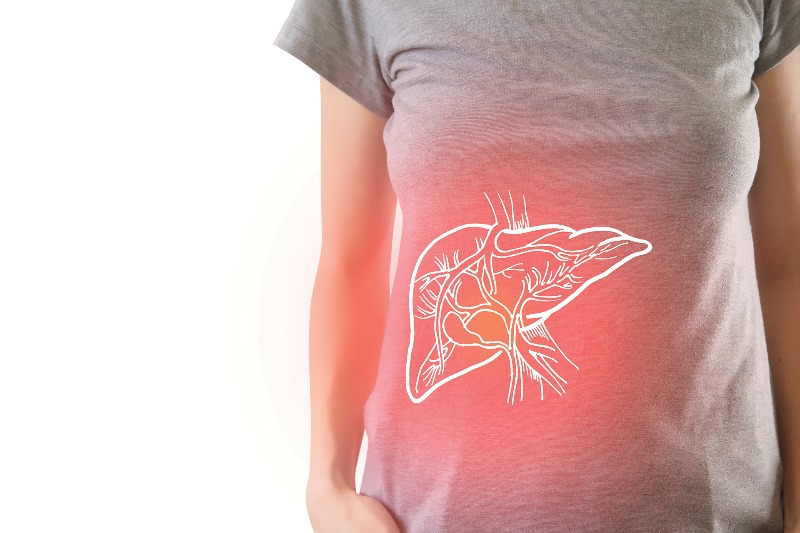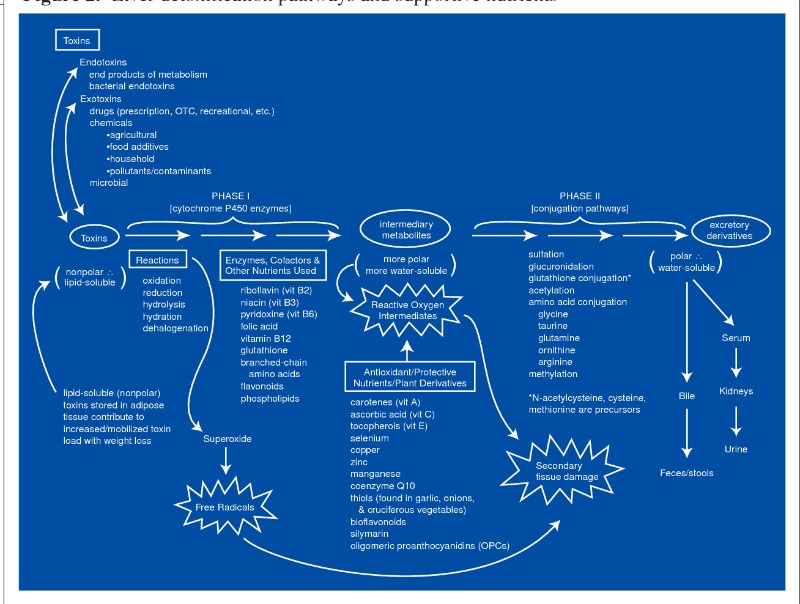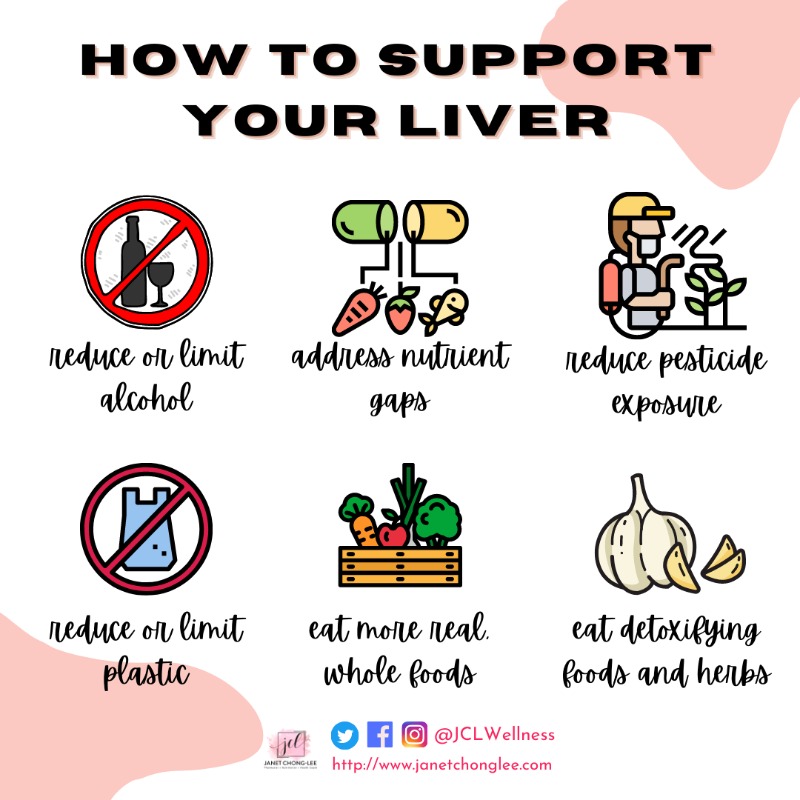March is the Canadian Liver Foundation's Liver Health Month.
March 15th, 2021

March is
the Canadian Liver Foundation's Liver Health Month! Here are 5 things you should know about your liver:
1) Your liver is the largest INTERNAL organ in your body! It weighs approximately 3 - 3.5 lbs (1.36-1.59
kg). (The largest EXTERNAL organ is your skin - amazing!)
2) Your liver performs over 500 essential tasks
for your body, including detoxification (e.g. removing alcohol from your system), metabolism (of drugs or
medications), bile production, converting excess sugar into glycogen for storage within the liver, etc.
3) Detoxification is the process of neutralizing toxins (whether they be environmental, pharmaceutical,
endogenous, etc.) and clearing it from our system. As the largest organ in our body, our liver plays a big role in
removing the toxins we encounter in our daily lives. These include, but is not limited to: pesticides, alcohol,
chemicals found in cookware or cleaning products, plastics, etc.
The Phase I and
Phase II enzyme systems that haunted me during pharmacy school years ago are also employed by the liver to
detoxify pesticides, pollutants, etc.

Figure 2: The Detoxification Enzyme Systems
While our liver does have the capacity and ability to detoxify toxins naturally, it is important to remember that
our liver can only do so much at any given time.
For example, if we consume more alcohol than our body can process, the alcohol that has not been processed by your
liver circulates throughout your body. The alcohol in your blood then starts to affect your heart and brain,
leading to effects such as slurred speech, impaired judgment, and increased heart rate. Heavy drinking over time
can cause an increase in certain liver enzymes, and can cause liver disease.
So, while a "liver cleanse" is not needed, it's important to recognize the finite capabilities of your liver, and
to support healthy liver function by engaging in lifestyle approaches that are in alignment of your goals (which I
hope is related to living your most healthful life). This is also why certain medications such as acetaminophen
can cause liver damage if too much is taken at one time, as certain pathways are saturated and toxic compounds are
built up. In addition, your liver needs the right tools (i.e. vitamins, minerals, etc.) to be able to clear toxins
from our body. Without the proper tools, your liver cannot do its job properly, or as efficiently; this is where
"build up" of toxins could occur.
4) Non-alcoholic Fatty Liver Disease (NAFLD) is now the most common form of chronic liver disease and has a
global prevalence of about 25%. Once considered rare, its incidence is increasing with
rising levels of obesity, type 2 diabetes, and metabolic syndrome. NAFLD is predicted to become the leading cause
of cirrhosis (liver scarring) requiring liver transplantation in the next decade.
Causes of NAFLD include: excess energy intake (the excess energy leads to excess fat accumulation in the liver),
too much refined carbohydrates (due to de novo lipogenesis (literally “making new fat”), too much sugar,
especially fructose (while glucose can be used by virtually all cells in the body, fructose must be metabolized by
the liver), and sedentary lifestyle. Those with increased risk of NAFLD include those who are insulin resistant,
those who carry excess weight in their middle, and those who are genetically predisposed. The first line treatment
for NAFLD is weight loss, and there is emerging evidence suggesting that a keto or low-carb diet can improve NAFLD
by decreasing liver fat, improving insulin resistance, and assist in the weight loss process. A low-carb or keto
diet may also help to reverse the disease process.
5) While there are supplements on the market that are labelled to assist with "cleansing" the liver, there
is no "one size fits all" supplement that will work for all. It is more important to support your body in the long
run by using a food and lifestyle-first approach. This means maximizing the impact of the right foods, and
reducing our exposure to toxins (e.g. pesticides, plastics, environmental pollutants, etc.) Incorporating more
real, whole foods into our diet and being mindful of what we wear, use in the home, or even what we use to cook,
can make a big difference in supporting our liver!

Copyright © 2021 JCL Wellness.
All rights reserved.